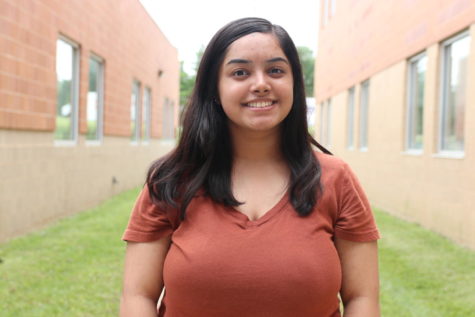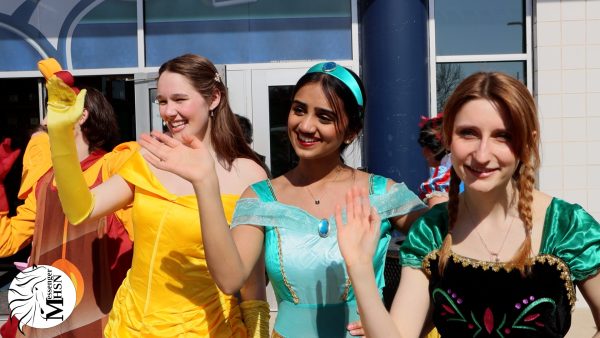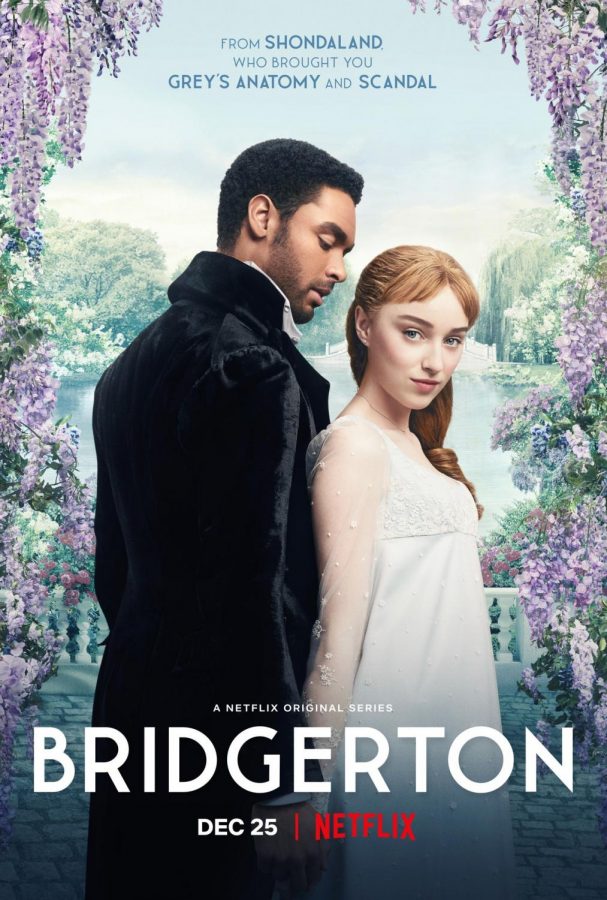Review: Bridgerton
Media by Netflix
In late January, Chris Van Dusen’s and Shonda Rhimes’ “Bridgerton” was renewed for a second season, only a month after the highly anticipated release that garnered a significant viewership.
I very rarely “binge watch” shows, but for Chris Van Dusen’s and Shonda Rhimes’ “Bridgerton,” I was wide awake till 6 a.m with my eyes merely five inches away from my phone screen and my index finger routinely clicking the “next episode” tab.
The Netflix original series is based on a novel series by Julia Quinn and premiered last month, Friday, Dec. 25, with overwhelmingly positive reviews. The hit-show became the fifth biggest debut in Netflix history and was renewed for a second season In January. The creators even hinted at a long-running show, one for each novel in the series for up to eight seasons.
With Phoebe Dynevor and Rege-Jean Page playing the lead roles, the fictional storyline follows the clashes of debutantes, dukes and aristocratic gossipers in the London Regency Era. Daphne Bridgerton (Dynevor), the eldest daughter in the Bridgerton household, prepares to “come out” to society and find a suitor through a series of upper-class balls.
After her elder brother scares men from approaching her, Daphne teams up with the mysterious Duke of Hastings (Page) to fake court. This increases her desirability to find a suitor, and he seems unavailable to the ladies, as he doesn’t want to marry and have kids. The two end up falling in love and problems ensue as a “Gossip Girl” type of news source, who goes by the name of Lady Whistledown, exacerbates the secrets and rumors of London’s inner society.
While the show makes the average woman want to adorn herself with corsets and surround herself with dashing men, there are still a few issues that need to be respectfully addressed in the upcoming season.
As a POC, I wanted to escape and see a society where I could wear pretty dresses and be considered royalty. I saw that through beautiful visuals, but I also saw misrepresentation of POC.
I have not read the novel series, but I researched the overall synopsis and came to the conclusion that, while the series is a historical romance, there aren’t any people of color (POC) in the novel series, and thus there is no racial tension in the fantastical society. However, the show opts to “color-blindly” cast their actors, meaning POC were casted in these white characterizations.
That would have been perfectly fine had the creators not introduced the concept of racism into the plotline. A few episodes in, the Duke and Lady Danbury, his mother-figure of an aunt, have a serious conversation about how Black people came to be aristocrats and part of the royalty, with Lady Danbury saying “we were two separate societies divided by color until a king fell in love with one of us.”
In addition to that conversation, the Duke’s relationship with his father, as seen through flashbacks, indicates POC had to work to be considered equals, and they still feel ostracized by society and have to work “twice as hard” as white people for the same recognition.
This feeling is a realistic one for many POC in the U.S. Because modern day societal issues were introduced into a world that was meant for escapism, it should be faced with critiques.
The dynamic between Daphne and the Duke has a lot of back and forths, and there are many instances where Daphne manipulates her power as an upper-class white woman to essentially “trap” the Duke into a marriage.there is also a specific scene where Daphne violates the Duke’s consent for her own benefit. While it may come from her own womanly innocence, it is important to note that race continues to be tokenized in this fantastical world.
The most significant characters of color are the queen, Lady Danbury, Marina Thompson, the Duke and his non-aristocrat friend Will Mondrich. All of these characters except Will embody harmful stereotypes that perpetuate a negative image of POC, especially Black people. Lady Danbury gossips and interferes with people’s personal lives, Marina lies about her pregnancy to find a suitor and the Duke is overly promiscuous and plays the role of a seducer in most scenes.
It’s both interesting and disappointing that these specific characterizations were played by POC, and it’s even more disheartening to know that the producer of the show is a prominent Black female producer in Hollywood.
I wish the creators hadn’t incorporated real-life issues into a fantasy world and had just opted for color-blind casting, but now that they have, I hope they delve into the complex racial history in this society and leave the harmful stereotypes in the past.
To the creators of Bridgerton, please keep your viewers in mind for the future seasons. We want to be respectfully represented.
Your donation will support the student journalists of Marquette High School. Your contribution will allow us to purchase equipment and cover our annual website hosting costs. You may become a PATRON by making a donation at one of these levels: White/$30, Green/$50, Blue/$100. Patron names will be published in the print newsmagazine, on the website and once per quarter on our social media accounts.

Waha Siddiqui, senior, is the Editor in Chief of the Messenger for the 2020-2021 school year. Beside her involvement in student journalism at Marquette,...







